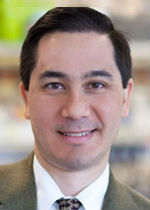 |
| Beth Israel Deaconess Medical Center's Dr. Dan Barouch |
A team of collaborators drawn from Harvard, Johnson & Johnson ($JNJ) and other groups published results from a preclinical animal study Thursday afternoon that underscores the potential for developing the world's first HIV vaccine. After more than 30 years of frustrations and setbacks, the investigators say that their work involving dozens of rhesus monkeys has produced the best early evidence seen so far that they might be on the right track toward protecting millions of people from a notoriously puzzling and lethal virus.
Several features of this vaccine differentiate it from all the others tried before, says Dr. Dan Barouch, director of the Center for Virology and Vaccine Research at Beth Israel Deaconess Medical Center and lead author of the study. For one thing, it relies on optimized or "mosaic" antigens designed to elicit the broadest immune response possible. Because there are different viral sequences in play--with the virus presenting different challenges from one patient to the next--they set out to "boost a highly functional antibody response. They are highly functional short of neutralizing."
"Many different technical functions" are involved, he added, "all based on different ways of clearing the virus."
According to a statement from officials at J&J's research arm, Janssen, the team used a "prime-boost" vaccine approach, using AdVac Technology from Janssen and a trimeric envelope protein boost. The monkeys were given an adenovirus serotype 26, or Ad26, vectored vaccine to prime the immune system, and then a "boost of a purified HIV envelope protein intended to enhance the immune system over time."
A total of 72 monkeys were included in two preclinical studies, says Barouch, and after they were vaccinated they were injected 6 times with one of two primate viruses similar to HIV. This viral challenge, he adds, was 100 times more likely to spur an infection than the exposure faced by most people at risk, and still half of the monkeys were protected against infection.
"We are very encouraged by these results," says Barouch, adding that investigators are gaining insights into the kind of immune responses relevant to gaining protection and the vaccine strategies needed to produce them.
Bottom line: "The degree of protection is greater than has been achieved before in this highly virulent model," says the Harvard investigator, who's been working in this field for more than a decade. It's also the first time a Big Pharma company has seen a strong enough response to warrant sponsoring human studies. The next step will be to test safety and immunogenicity in healthy volunteers and then advance it into an efficacy test in high-risk individuals at a later, uncertain, date.
Barouch isn't overplaying his hand. He's well aware that there's a long way to go before conclusive evidence is gathered. But a primate study like this can be predictive of success in humans. And if it pans out, they could be on a path toward one of the Holy Grails in modern medicine.
"Our ultimate goal is to develop a vaccine that prevents HIV in the first place," said Dr. Paul Stoffels, J&J's chief scientific officer, in a statement. "By Janssen collaborating with multiple stakeholders on new tools, we hope one day to help eradicate HIV."
- here's the release
- get the research abstract